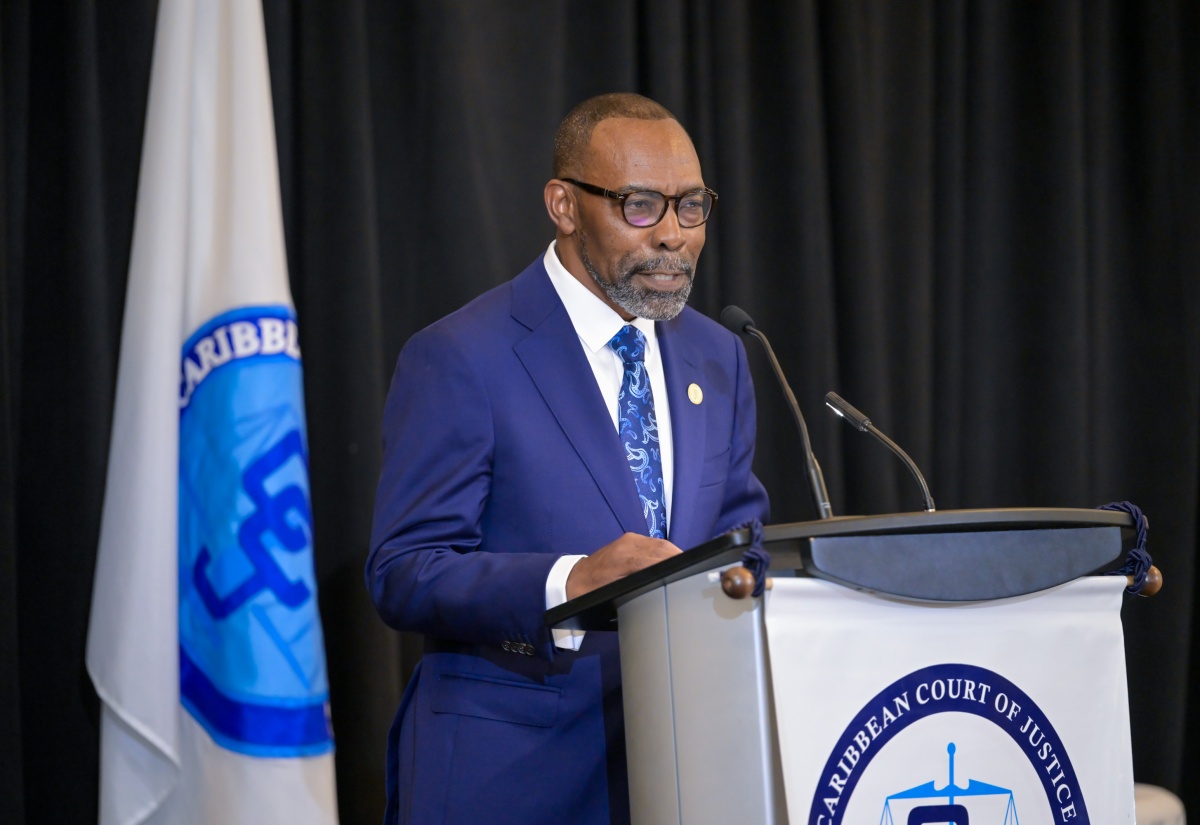CCJ to Launch Seven-Year Strategic Plan Under President, Justice Winston Anderson
By: , October 7, 2025The Full Story
President of the Caribbean Court of Justice (CCJ), Hon. Mr. Justice Winston Anderson, has announced that the CCJ will soon launch its strategic plan for the next seven years, spanning 2025 to 2032.
“The plan reflects our overarching mission to harness and advance the growth in Caribbean jurisprudence. It embraces our vision of judicial excellence, supported by ever-evolving institutional capacities and competencies,” Justice Anderson stated.
He was speaking during a special sitting of the CCJ on Monday (October 6) to commemorate his inauguration. The sitting was held at the Seat of the Court in Port of Spain, Trinidad and Tobago.
Mr. Anderson emphasised that the plan identifies the continued delivery of high-quality judgments to the people and states of the Caribbean Community (CARICOM) as its foremost strategic priority and area of intervention.
“The pride of place given in our strategic plan to the judicial output symbolises, in a powerful way, that administrative and logistical activities of the Court will be intentional in their support of the [CCJ’s] overriding function,” he said.
Consequently, the CCJ President stated that over the coming years, keen attention will be given to enhancing clarity in judicial guidance from the Apex Court, with the aim of reducing the proliferation of similar or overlapping opinions.
“The Court will prioritise the importance of speaking with a clear voice, presenting coherent guidance and delivering transparent justice. We will constantly review our procedures for decision-making, with a view to creating various opportunities for discussion, consensus, dissension, challenge, agreement, all of which are critical to the adjudicative process,” he affirmed.
Justice Anderson shared that another key area of focus will be promoting greater accessibility to the Court’s judgments.
“It is essential that we make our judgments easily available to all our stakeholders, judicial officers, legal practitioners, law students, and the public. The Court’s website contains all our judgments. Our online library catalogue makes all judgments and publications of the Court readily available. Our cases are periodically published in the West Indian law reports. But accessibility may require a deeper dive. Searchability of judgments is essential to ensuring that relevant cases are followed or cited as appropriate,” the President pointed out.
Meanwhile, he advised that the Court will continue its efforts to leverage technology in advancing judicial efficiency.
“Most recently, in partnership with the Caribbean Agency for Justice Solutions (CAJS), we have sought to leverage artificial intelligence (AI) with the hope of harnessing its transformative benefits. The recent introduction of the Court’s AI tool – ‘Ask CCJ – has been a step in that direction. It is a tool designed to support and accelerate the research process for judges, judicial counsel, library and registry staff,” Justice Anderson stated.
He added that the CCJ intends to intensify its itinerant sittings, “so that the people of the region can see us, interact with us, and realise that we are, in fact, their kith and kin – part and parcel of the fabric of their society”.
In the meantime, Justice Anderson has pledged to uphold the Court’s commitment to delivering superior judgements that strengthen Caribbean jurisprudence.
He reaffirmed this priority as he marks three months in office as the fourth CCJ President and the first Jamaican appointed to the position.
Mr. Anderson noted that over its 20-year history, the Court has built a substantial body of jurisprudence, delivering 347 decisions – 40 in its original jurisdiction, including one advisory opinion, and 307 in its appellate jurisdiction.
He reiterated that the decisions of the Court have begun to shape the way that Caribbean people live their lives.
“We hope that those States which have not yet acceded will, ultimately, come to appreciate the value the Court offers to the region,” Justice Anderson stated.


